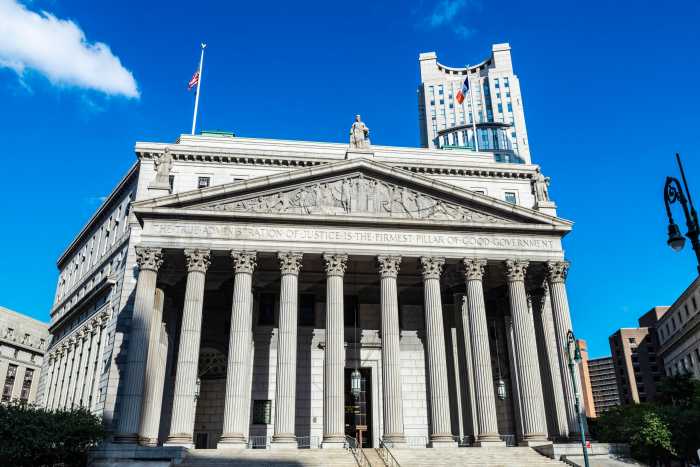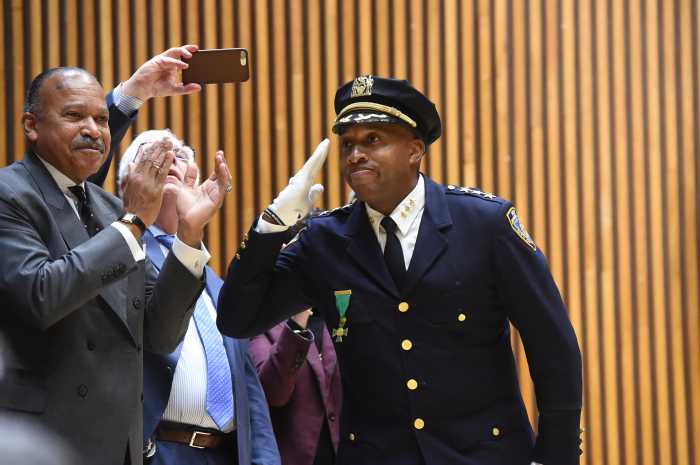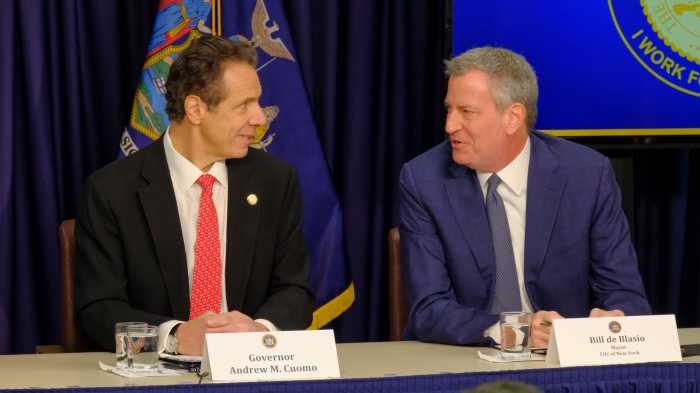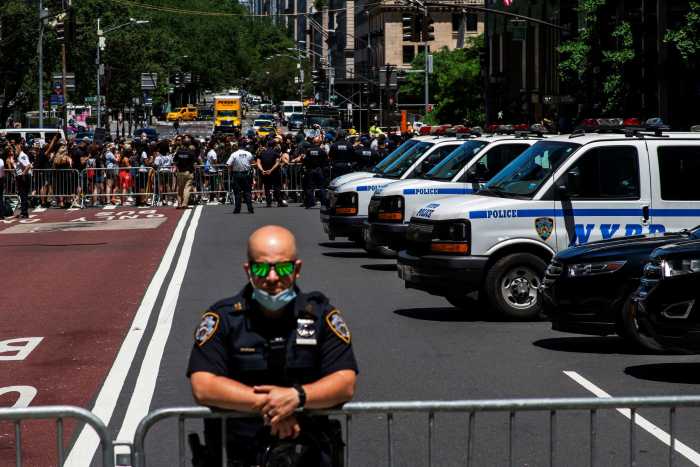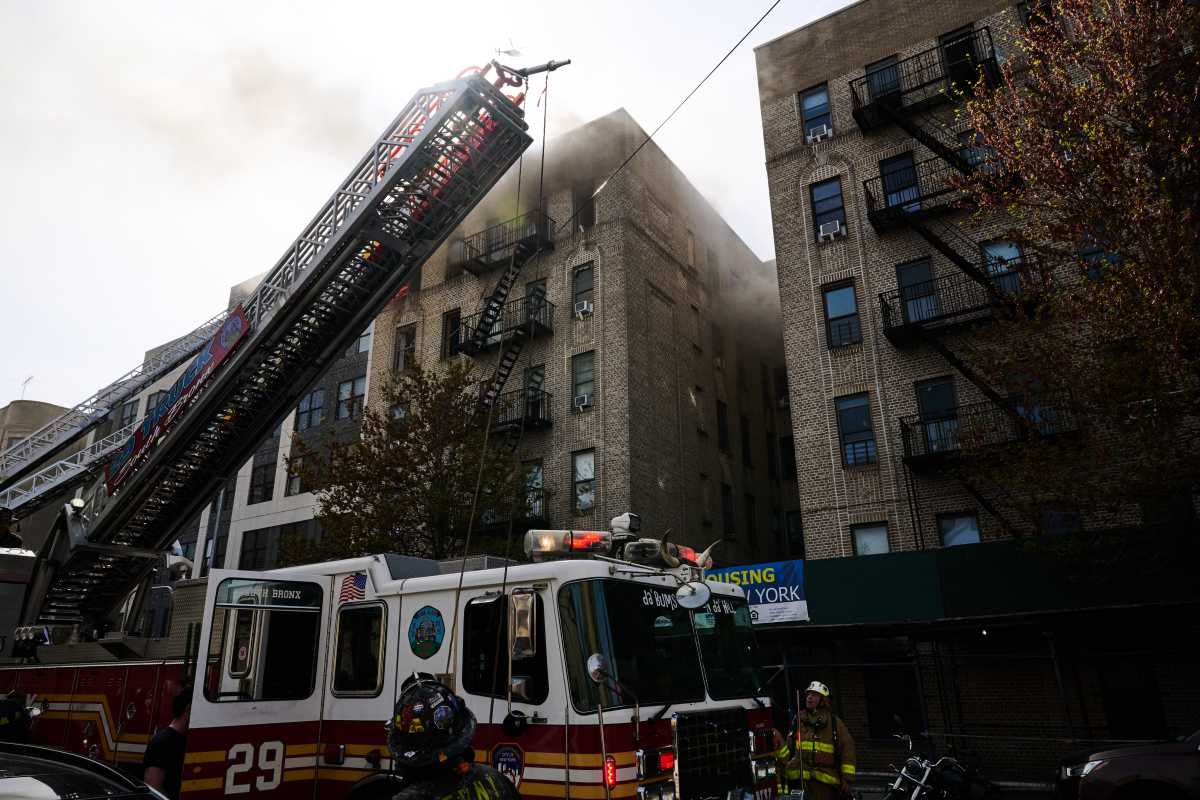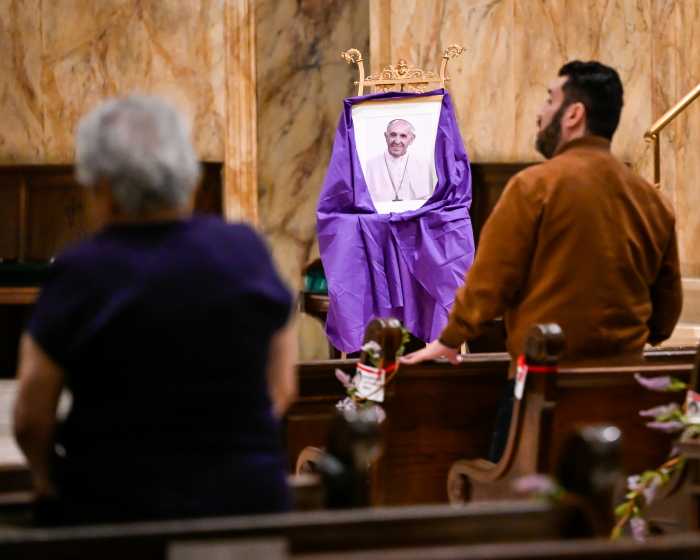Twenty leading criminal justice reform groups across New York State penned an open letter to Governor Kathy Hochul after a version of her ‘ten-point plan’ to roll back several pieces of bail reform legislation was leaked to the New York Post.
The open letter released on March 23 in response to the proposed plan argued that many of the points outlined in the plan would devastate Black, Brown and low-income communities by tweaking bail reform laws by giving judges more discretion to order bail and detain accused offenders for additional crimes based on criminal history, including repeat offenders.
“The proposed amendments to bail, discovery, and Raise the Age are not evidence-based interventions and will not increase community safety,” the letter read. “Her plan will, however, result in an explosion in the incarceration of New Yorkers, particularly poor people and people of color, at a time when New York City’s jails are falling ever deeper into crisis and statewide jail populations are already rising.”
These groups also believe that by implementing some of the measures, Hochul would be rolling back at least five years of progress made to dismantle what they believe is a state legacy of mass incarceration of minority communities.
“We’ve spent years pouring over the data to get to a place to be able to reform the bail system so that it wasn’t wealth-based and wasn’t unfair and discriminatory,” said Elizabeth Gaynes of the Osborne Association, one of the criminal justice reform groups that penned the open letter in an interview with amNew York. “And yet there’s this response that says that before the budget is passed, let’s just mess with it.”
Gaynes also believes that this seemingly rushed push to interfere with bail reform and criminal justice is a result of strain on elected officials during the current surge of crime throughout New York.
“I can’t help but think that it’s a response to the fact that after the newspapers have inflated or conflated bail reform with crime, that it then puts pressure on legislators and people running for office and they just want to grab at what sounds like an obvious solution,” said Gaynes. “But, it’s based on a faulty premise in the first place, which is that bail reform really has anything to do with the larger crime problem.”
This sentiment was echoed in the open letter which also stated that the proposed alterations to bail, discovery and Raise the Age (the law that changed the age a child can be criminally prosecuted to 18 instead of 16) are not evidence-based decisions and would not increase community safety. Alternatively, the groups said there were many other legislative choices that are proven to lower incarceration rates and empower disadvantaged communities.
“Instead of pushing policies that will harm individuals and communities, New York should invest in solutions with a proven track record in addressing crime, including community violence intervention, alternatives-to-incarceration, mental health and substance use disorder services, and education, employment, and housing supports.” the letter continued.
Gaynes emphasized this to amNew York, saying that if the state had invested more in educational and career opportunities during the pandemic, many of the young people currently incarcerated or committing crimes wouldn’t have done so.
“Much of this [increase in crime] was brought in because of the pandemic,” said Gaynes. “Those 16 and 17 year olds that everybody is so afraid of? They should have been in school. But they weren’t, because we closed the schools. We thought they were going to work remotely, and some highly motivated kids had to sit in the parking lots of McDonald’s to get wifi to be able to go remote school because these communities don’t even have reliable broadband. You could do more to reduce youth crime by providing broadband internet and access to money in a legitimate way than all of these other solutions.”
In an op-ed published by the New York Daily News, Gov. Hochul and Lt. Gov. Brian Benjamin responded to criticism regarding the bill saying, repeat offender rates were a failure before bail reform legislation was enacted, and are a failure to this day.
“Blaming bail reform for the increase in violence that cities across America are facing isn’t fair and isn’t supported by the data,” said Hochul and Benjamin. “Doing so risks distracting us from what are likely far more significant factors: upheaval from the pandemic, the availability of illegal guns, increased gang activity, lower arrest rates and a backed-up court system, to name a few. We are committed to protecting the progress we’ve made toward a fairer criminal justice system. But that is not at odds with making thoughtful, measured changes to our laws that would strengthen public safety.”




